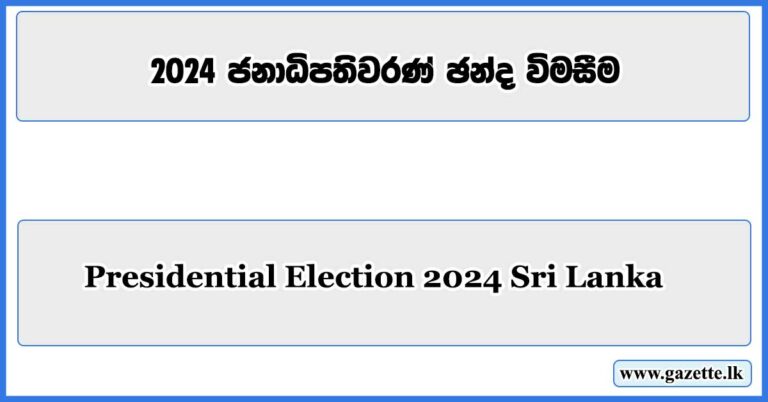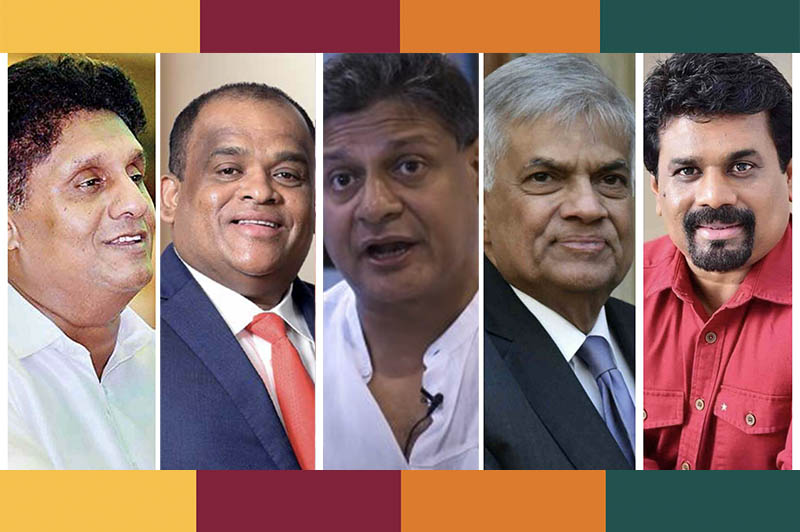Sri Lanka's 2024 Presidential Election Results: A Historic Shift
The 2024 Presidential Election in Sri Lanka has marked a significant turning point in the country's political landscape. On September 22, 2024, the Election Commission declared Anura Kumara Dissanayake, a Marxist candidate, as the President-elect. This election is notable not only for the outcome but also for the context in which it occurred, reflecting widespread public discontent with the traditional political elite.
Election Context and Background
Sri Lanka has been grappling with a severe economic crisis that has led to widespread hardship among its citizens. The crisis, which escalated over the past two years, has been characterized by soaring inflation, shortages of essential goods, and a significant decline in living standards. This turmoil has fueled public anger against the established political order, which many blame for the country's economic woes.
Dissanayake, who previously held a marginal position in Sri Lankan politics, emerged as a strong contender by positioning himself as a champion of the working class and a critic of the political elite. His campaign resonated with voters who were eager for change and disillusioned with the status quo.
Election Results
According to the latest reports, Dissanayake won the election with a decisive margin, reflecting a clear rejection of the incumbent political leadership. The election saw 17 million eligible voters, and the results were closely monitored as they unfolded. The Election Commission confirmed that Dissanayake's victory was a result of a historic second round of counting, a first for Sri Lanka, as no candidate secured more than 50% of the vote in the initial tally.
Key Highlights from the Results:
- Anura Kumara Dissanayake was declared the winner, marking a significant shift in the political landscape.
- The election was characterized by a high voter turnout, indicative of the public's engagement and desire for change.
- The results were seen as a direct response to the economic hardships faced by the populace, with voters seeking a leader who promised to address these issues.

Public Reaction and Implications
The public reaction to Dissanayake's victory has been overwhelmingly positive among his supporters, who view him as a beacon of hope for a better future. His campaign focused on anti-elite sentiments and promises to revamp the International Monetary Fund (IMF) deal, which many believe has exacerbated the economic crisis.
Key Implications of the Election:
Political Realignment: Dissanayake's victory signals a potential realignment in Sri Lankan politics, moving away from traditional parties that have dominated the landscape for decades.
Economic Reforms: His administration is expected to prioritize economic reforms aimed at stabilizing the economy and addressing the needs of the working class.
International Relations: The new government may also seek to renegotiate terms with international financial institutions, reflecting a shift in economic policy.
Media Coverage and Analysis
The election results have garnered significant media attention, with various outlets providing live updates and analyses. Notable coverage includes:
- Al Jazeera reported on Dissanayake's victory, emphasizing the historical significance of the election and the public's desire for change.
- The New York Times highlighted the broader implications of the election, noting the public's weariness with the established leadership.
- BBC and AP News provided updates on the election process, including the unprecedented second round of counting.
Key Articles:
- Sri Lanka 2024 election results live: Dissanayake declared winner - Al Jazeera
- Leftist Leader Elected President as Sri Lanka Rejects the Old Order - The New York Times
- Marxist Dissanayake wins Sri Lanka's presidential election as voters reject old guard - East Bay Times

The 2024 Presidential Election in Sri Lanka represents a pivotal moment in the nation's history. With Anura Kumara Dissanayake at the helm, the country is poised for potential reforms aimed at addressing the pressing economic challenges it faces. As the new administration takes shape, all eyes will be on how it navigates the complex landscape of domestic and international politics, and whether it can deliver on the promises made during the campaign. The election results not only reflect a shift in political power but also a profound desire for change among the Sri Lankan populace.





